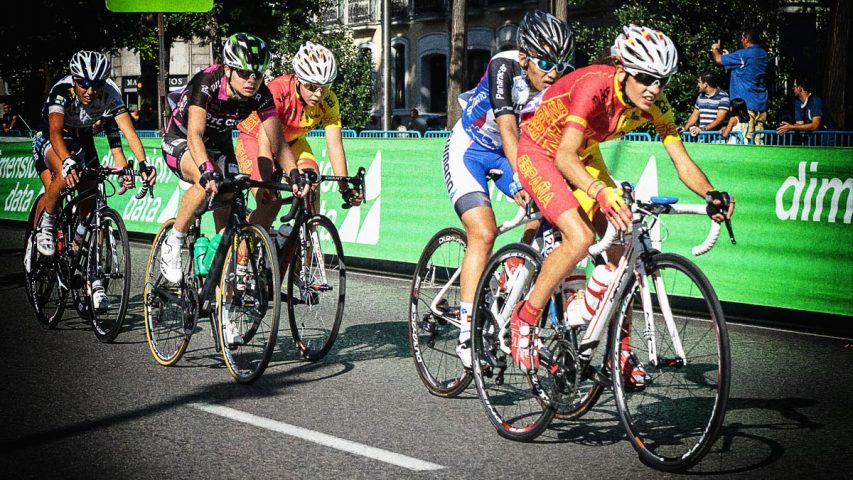- Have any questions? Contact us!
- info@dr-rath-foundation.org

New study suggests medication errors and adverse drug events are commonplace in surgical operations
October 29, 2015
Public trust in chemotherapy for cancer collapsing: scientific orthodoxy beginning to wake up to natural approaches
November 13, 2015New research shows vitamin D supplements can lower blood pressure and improve exercise performance

A new pilot study from Scotland has shown that taking vitamin D can lower blood pressure and improve exercise performance. Carried out by researchers from Queen Margaret University in Edinburgh and presented at this year’s Society for Endocrinology annual conference, the study notes that volunteers given the supplements for two weeks were able to cycle for longer with less exertion than those given placebo pills. Commenting on the results, researcher Dr Raquel Revuelta Iniesta said they suggest that “taking vitamin D supplements can improve fitness levels and lower cardiovascular risk factors such as blood pressure.”
The study followed 13 healthy adults matched by age and weight, each of whom were given either 50 micrograms (2000 IU) of vitamin D per day or a placebo. The researchers found that those supplementing with vitamin D had lower blood pressure compared to those taking the placebo, as well as lower levels of the stress hormone cortisol in their urine. High levels of cortisol may raise blood pressure by restricting arteries, narrowing blood vessels and stimulating the kidneys to retain water.
In the fitness test, the researchers observed that the group taking vitamin D supplements could cycle 6.5km in 20 minutes, compared to just 5km at the start of the experiment. Notably, therefore, despite cycling 30 percent further in the same time, the vitamin D group also showed lower signs of physical exertion.
Drugs only treat symptoms of high blood pressure
Worldwide, it is believed there are now around 1 billion people living with uncontrolled high blood pressure. Hypertension, the medical term for high blood pressure, is diagnosed when blood pressure readings are consistently higher than 140/90 mm of Hg. Unfortunately therefore, and as millions of patients have learned at great cost to their health, conventional, pharmaceutical-oriented medicine is confined to treating the symptoms of this disease. Beta-blockers, diuretics and other medications artificially lower blood pressure without correcting its primary underlying cause. They can also produce side-effects such as decreased blood circulation, dizziness and other health problems.
Cellular Medicine research targets cause of high blood pressure

In contrast to the deadlocks of conventional medicine, Dr. Rath’s Cellular Medicine approach has firmly established that the main cause of high blood pressure is a chronic deficiency of essential nutrients in millions of artery wall cells. Among other functions, these cells are responsible for the availability of “relaxing factors”, which decrease vascular wall tension and keep the blood pressure within normal range. Micronutrients such as the amino acid arginine, vitamin C, magnesium and others contribute to the optimum availability of these artery wall relaxing factors. A chronic deficiency of these essential nutrients can result in spasms and a thickening of the blood vessel walls, which can eventually elevate blood pressure.
Armed with this knowledge, researchers at the Dr. Rath Research Institute have conducted a pilot clinical trial to evaluate the effects of synergistic micronutrient supplementation in patients aged between 32 and 60 years old. Significantly, unlike the participants in the Scottish vitamin D study, the patients in this trial had been clinically diagnosed with hypertension. At the end of 6 months, 70% of them showed a clear improvement in their blood pressure readings. Overall their blood pressure dropped by 15%-16%, with average values at the end of the study being 138/83 mm of Hg – lower than those defined by the World Health Organization (WHO) as constituting hypertension.
With the WHO reporting that high blood pressure is estimated to cause 7.5 million deaths per year, about 12.8% of the total of all deaths, and pharmaceutical medicine not addressing its root cause, the time has come for the people of the world to take matters into their own hands. Nutritional and Cellular Medicine offer a safe and effective option towards eradicating high blood pressure naturally. The only limiting factors to the global implementation of this approach are how far and how fast this information can be spread – and both of these things are up to us.



